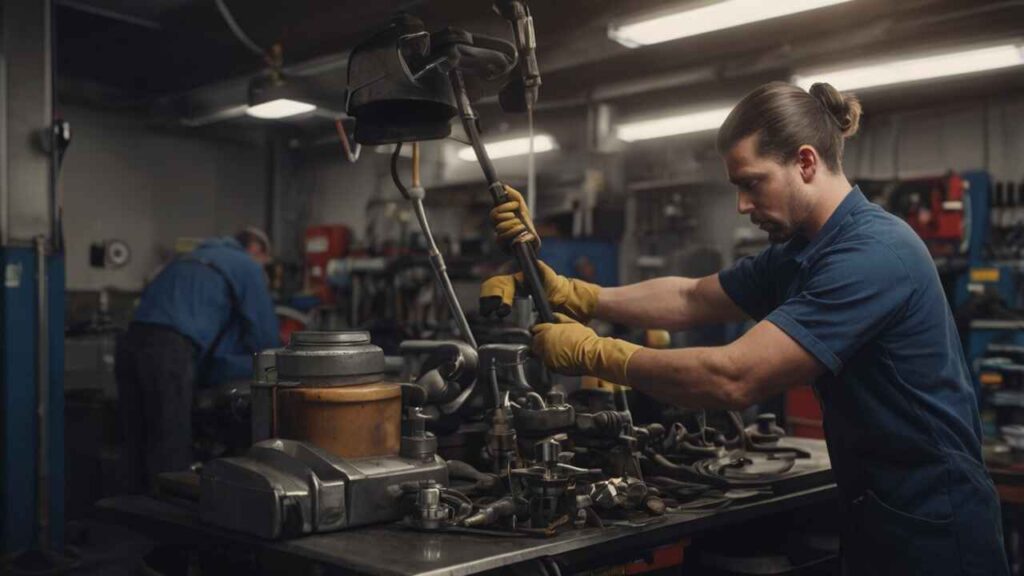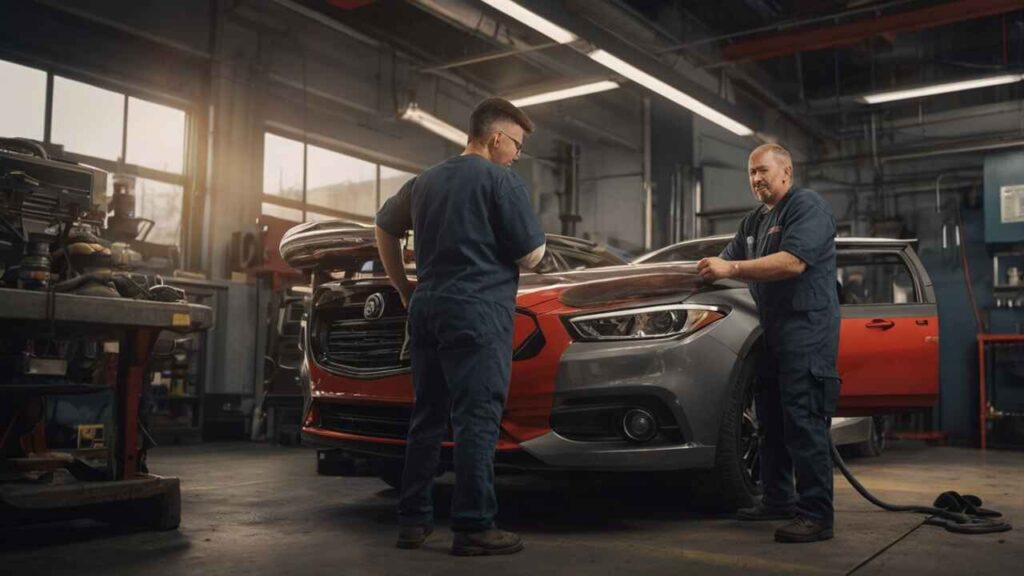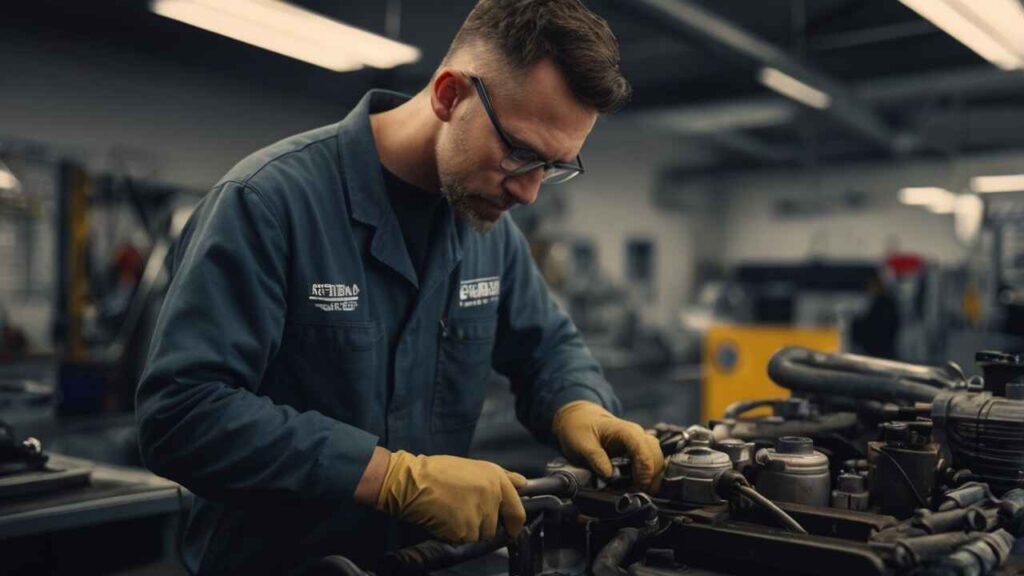It’s often said that an oil change is the most important ritual in car ownership, but too many drivers treat it like the only thing that matters. Preventive car care, however, stretches far beyond just draining and replacing oil. Vehicle maintenance tips that involve air filter replacement, oil color check, mileage tracking oil change schedules, and even small DIY car maintenance routines can make or break how long your engine truly lasts. I’ve seen cars that were religiously taken for oil changes still break down too soon—mostly because other systems were ignored. The truth is, pairing strong oil change habits with broader maintenance can feel like a chore at first, but it’s often the difference between enjoying a smooth ride for years or paying for expensive repairs that could have been avoided.
Even professional mechanics in North Carolina often emphasize this. A trusted technician once told me: “Oil is the blood of the car, but the filter is its lungs, and the schedule is its heartbeat. Ignore one, and the others suffer.” That stuck with me, especially when I noticed how many owners forget about air filters, belts, and spark plugs. Having read Top 5 Common Problems from Skipping Oil Changes and How to Avoid Them, it became obvious how quickly neglect snowballs. Engines overheat, mileage tanks, and suddenly the repair bills climb higher than expected.
Why Oil Changes Alone Aren’t Enough
Vehicle owners often think of an oil change as the “magic reset button.” I used to think the same. But after helping a friend whose car stalled despite never missing an oil change, I learned the hard way. His air filter hadn’t been touched in three years. Dust and debris suffocated airflow, fuel efficiency dropped, and the engine worked harder than it should. This wasn’t a failure of oil—it was a failure of preventive car care. Reliable service shops that offer oil changes in North Carolina often encourage clients to check related systems while the hood is open. It’s not upselling—it’s smart car ownership.
Mileage tracking oil change schedules are another overlooked aspect. People remember the 3,000–5,000-mile oil change rule, but they forget that mileage also dictates tire rotation, brake pad checks, and even transmission fluid inspections. A professional explained to me once, “Skipping a rotation is like skipping leg day—it’ll still run, but unevenly and with more strain.” I chuckled, but he was right. The best technicians don’t just swap oil; they provide a step-by-step overview of what’s next, much like what’s outlined in a [Step-by-Step Guide to a Professional Oil Change Process].
The Role of DIY Car Maintenance
Now, I’ll admit, I’m not always the guy who rushes to the shop. DIY car maintenance can be surprisingly satisfying, even for non-mechanics. Checking the oil color, for example, takes only a few seconds but reveals a lot: clean amber means you’re safe, while dark sludge screams for attention. A simple funnel, wrench, and rag can take you far. Replacing an air filter? That’s usually as easy as opening a box, popping the old one out, and sliding in a new one. There’s no need to fear it. Still, the key is knowing limits. DIY vs. Pro advice articles often stress not to tinker with complex systems unless you’ve got the right tools, manuals, and confidence.
On the other hand, tasks like tire pressure checks or topping up windshield fluid are low-risk, high-reward. They save money, teach you how your car behaves, and prevent emergencies. There’s a strange kind of pride in hearing a mechanic say, “Whoever’s maintaining this car is doing a solid job,” and realizing it was your own hands that kept it running. Preventive car care doesn’t have to feel like homework—it can feel like empowerment.
Choosing Trusted Experts
Despite all this, there will always be times when the wrench should be in a professional’s hand. Not every oil type suits every car, and that’s why guides like [How to Choose the Right Oil Type for Your Vehicle in North Carolina] matter. Climate, mileage, and even driving style affect what’s best. I once put the wrong oil in an old sedan, and within weeks, the idle felt rougher. Lesson learned—trusted experts exist for a reason. Choosing a reliable shop isn’t about fancy waiting rooms or free coffee; it’s about finding people who see beyond oil changes and care for the whole vehicle. This is where [Choosing a Trusted Oil Change Service in North Carolina: What to Look For] becomes more than just advice—it’s peace of mind.
At reputable shops, you’ll often see spare parts neatly stacked: OEM filters, belts, plugs, gaskets. These aren’t just for show—they’re the small components that prevent breakdowns. Watching a mechanic swap a belt while doing an oil change opened my eyes. It wasn’t about extra charges; it was about saving me from a future roadside breakdown. Preventive car care feels expensive in the moment but is almost always cheaper than reactive repairs.
Beyond Oil and Filters
It’s tempting to think this article covers it all, but vehicle maintenance tips extend even further. Brake fluid testing, battery health checks, radiator flushing, and even seasonal tire swaps are all part of a bigger story. One shop I visited showed me how a corroded battery terminal could mimic engine failure symptoms. Imagine spending thousands chasing a “dead engine” when it was really a $5 cleaning job. Small stories like this remind me how layered car care truly is.
Some articles in the oil changes category dive deeper into these additional areas, and it wouldn’t surprise me if more guides emerge about related issues like dealing with faulty sensors, best tools for home car maintenance, or understanding extended warranties. These subjects may not sound glamorous, but for the driver who’s tired of costly surprises, they matter. And honestly, isn’t that why we read sites like Pro Service Tips? Because having reliable, detailed, and sometimes quirky advice means less stress in the long run.
Real Case Study: The Long-Life Pickup
A neighbor of mine has a pickup with nearly 300,000 miles. People ask if the engine has been replaced, but the truth is simple: he paired his oil changes with obsessive preventive care. He tracked mileage like a diary, swapped filters every few months, and scheduled professional inspections twice a year. He even joked that his truck had a “doctor’s appointment” more often than he did. The result? A vehicle that still runs smoother than many cars half its age. This kind of reliability isn’t luck—it’s dedication to preventive habits.
FAQs
1. How often should I pair other maintenance with oil changes?
A good rule is every oil change, do a quick check of filters, fluids, and tire pressure. Every second oil change, schedule a professional look at belts and brakes.
2. Is it worth replacing an air filter myself?
Absolutely. Air filter replacement is among the easiest DIY car maintenance tasks, usually taking less than five minutes and requiring no tools beyond your hands.
3. Can skipping preventive care really shorten engine life?
Yes. Neglecting small steps like mileage tracking oil change intervals or ignoring oil color checks adds strain. Over time, even engines with regular oil changes can fail prematurely.
Preventive car care doesn’t demand perfection—it demands attention. Pairing oil change habits with smarter checks and simple maintenance routines saves money, extends engine life, and builds confidence as a car owner. Whether it’s through a DIY oil color check, an air filter replacement, or a visit to a reliable oil change service in North Carolina, the result is the same: fewer breakdowns, more miles, and more peace of mind.
If this article helped you think differently about your own maintenance routines, don’t keep it to yourself. Use the share buttons below to post it on your social media—because the more drivers understand preventive habits, the fewer will end up stranded on the side of the road.



